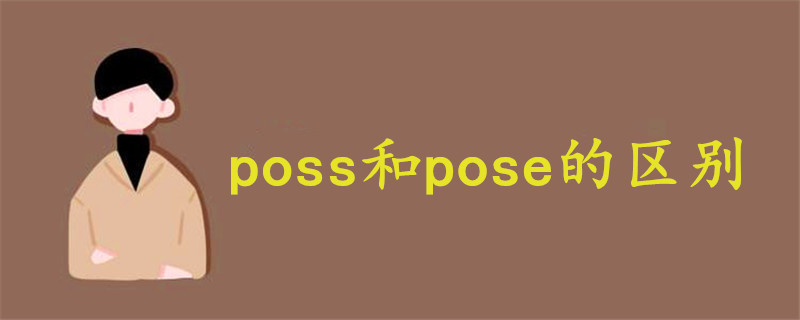poss和pose的区别:中文含义不同、词性及用法不同。poss强调因果关系,在句中仅作状语,修饰句中的一部分;而pose作为动词和名词,引出造成后果的原因,在句中作表语、状语和定语,意为造成、引起、姿势等。

一、poss的含义及用法
poss作为abbr. 可以是possessive、possible、possession。
例句:I'll be there if poss.
如果可能我会去那里的。
Tell them I'll be there as soon as poss.
告诉他们,我会尽快到那儿。
We'll rush it round today if poss.
如果可能,我们今天想把它做完。
If poss, I'd like the whole of it painted.
可能的话,我想将它全部油漆。
二、pose的含义及用法
1、作为动词,意为造成(威胁、问题等);引起;产生;提问;质询;(为画像、摄影)摆好姿势。
例句:The task poses no special problems .
这项任务不会造成特别的问题。
The delegates posed for a group photograph.
代表们摆好姿势准备拍集体照。
The gang entered the building posing as workmen.
这伙匪徒冒充工人混进了大楼。
I saw him out posing in his new sports car.
我看见他开着他的崭新跑车招摇过市。
2、作为名词,意为(为画像、拍照等摆的)姿势;装腔作势;故作姿态。
例句:He adopted a relaxed pose for the camera.
他摆了个悠闲的姿势拍照。










